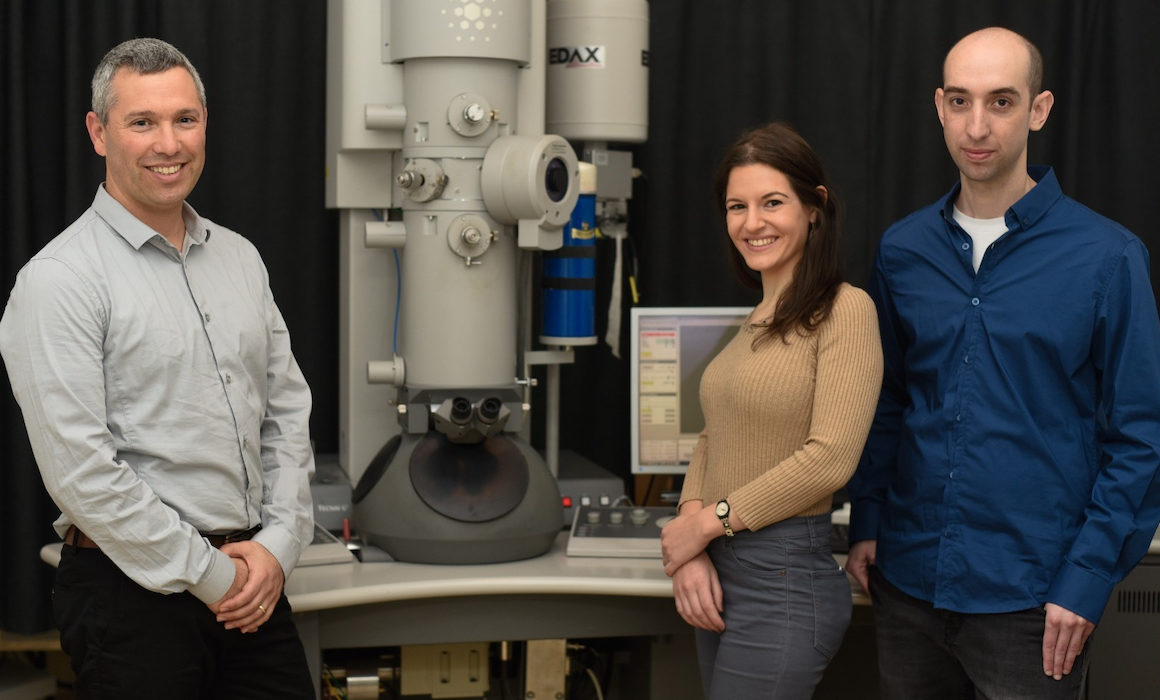Pictured Above / ( L-R): Professor Yehonadav Bekenstein, Sasha Khalfin, and Noam Veber (Credit : Rami Shelush)
What if damaged solar panels or even the cracked screen of your cell phone could heal themselves overnight? Technion scientists have developed self-repairing nanocrystals that might make that scenario a reality.
Led by Assistant Professor Yehonadav Bekenstein of the Faculty of Material Sciences and Engineering, the researchers happily stumbled upon the discovery while searching for an environmentally friendly alternative to toxic lead-based perovskites, materials that are commonly used in solar panels.
The scientists were using a transmission electron microscope (TEM) to take videos of new perovskite nanocrystals they had created, when they noticed that the high voltage beam of their microscope caused holes on the surface of the nanocrystals. The holes seemed to move inward to more stable areas, leading Bekenstein and his team to suspect the inward movement occurred as a result of organic materials that coat the nanocrystals’ surface. When they removed the layer of molecules, the crystals spontaneously ejected the holes and repaired themselves.
The discovery could provide a better understanding of self-repairing materials, and pave the way for use in a variety of electronics including solar panels in space, which are often damaged by micro-meteorites.
Prof. Bekenstein joined the Technion in 2018 after completing a postdoctoral fellowship at the University of California, Berkeley, and has since won the 2020 ERC Starting Grant for early-career scientists.


